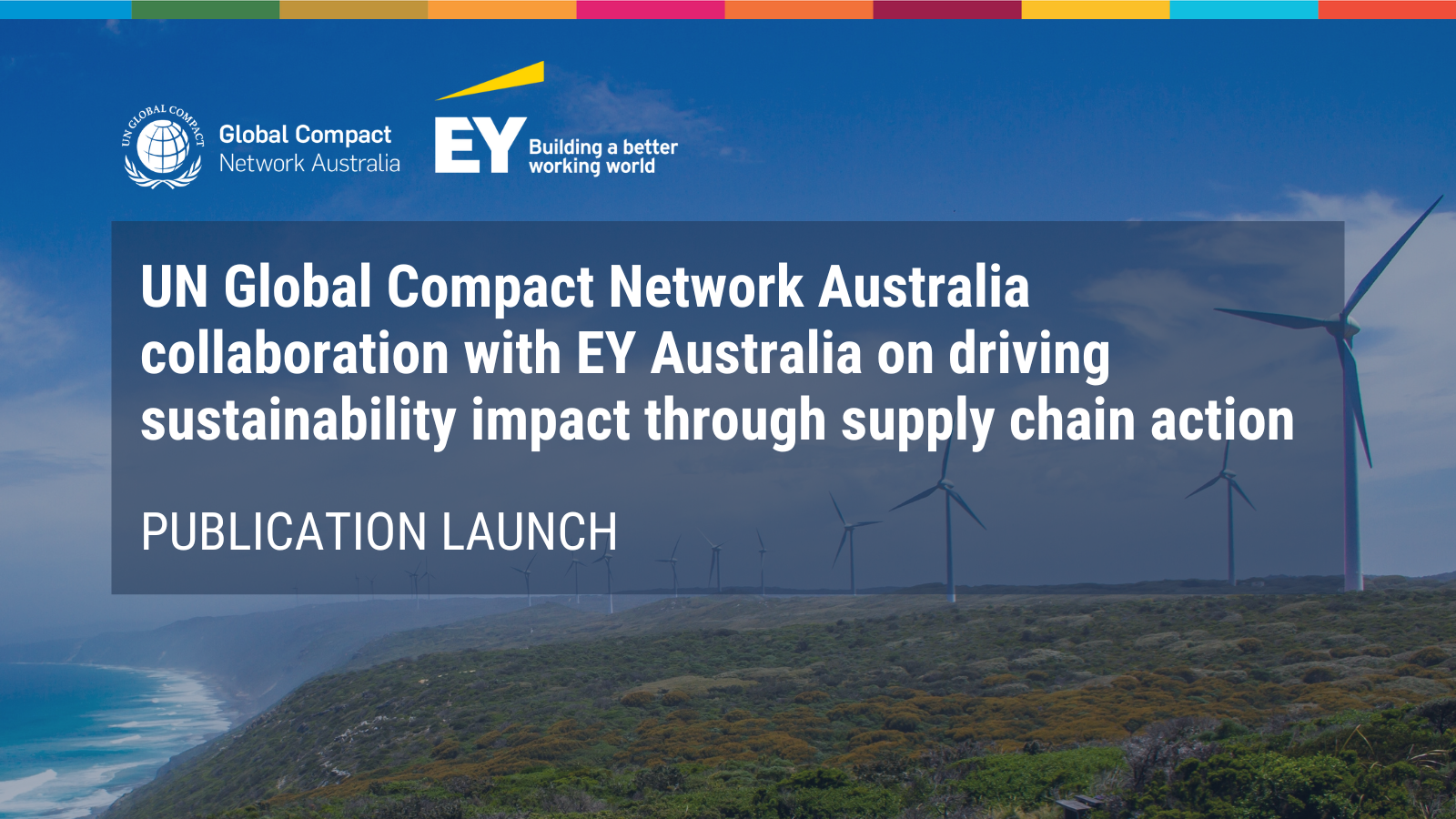
Environment & Climate Change, Featured, Media, News
New Report Urges Corporate Australia to Take Action Towards a Clean Energy Transition
Kylie Porter | October 28, 2020
The role of corporates and financial institutions will be instrumental in planning for and supporting economies and communities as Australia transitions from coal-fired electricity to a low carbon world, according to a new report released today.
The report, Just Transition: Implications for the Corporate Sector and Financial Institutions in Australia, prepared by the Institute for Sustainable Futures (ISF) for the Global Compact Network Australia (GCNA) and National Australia Bank (NAB), highlights key areas for businesses and financial institutions in managing their interests and those of their customers and shareholders through an energy transition.
One of the objectives of the Paris Agreement is a “just transition” which aims to create decent work, improve access to clean energy and address other equity impacts as part of the clean energy transition (UNFCCC, 2017).
The report is intended as a starting point for discussion on the role of corporates and financial institutions in planning for and supporting the delivery of the transition to net zero in Australia before 2050. It demonstrates the importance of inclusive planning and the need for a collaborative approach when working with impacted and vulnerable communities.
GCNA Executive Director Kylie Porter says,“ the clean energy transition is progressing strongly in Australia which provides us with a unique opportunity to address this transition, plan early for closures, engage in multi-stakeholder consultations, diversify regional economies and not replicate the mistakes that we have seen in other countries.”
“For coal producing countries such as Australia, the challenge we have now is how to avoid a disruptive transition. This means forward planning, strong multilateral cooperation and significant financial investments. If we fail to do so we will see enclaves of ‘stranded communities,’ ‘stranded assets,’ and ‘stranded workers.’ A coordinated and collaborative plan for the transition will assist with meeting net zero targets, reduce the risk of a patchwork approach to transition across the coal communities in Central Queensland, Hunter Valley and The Latrobe Valley. It will also enable Australia to be well-positioned to prosper from the clean energy transition.”
NAB Group Executive – Corporate and Institutional Banking, David Gall said that the report has provided a framework on how to think about the transition in the context of corporate strategy and embedding this into decision-making.
“We recognise there must be increased support for a just transition from corporates and financial institutions to ensure environmental sustainability and the creation of new jobs and opportunities for impacted communities.”
“We see opportunities for NAB and our customers in the transition to a low-carbon economy. We are engaging with our customers on how we can lend support through development and implementation of transition plans.”
“We are focused on serving customers well and helping our communities to prosper and this requires a long-term sustainable approach to decision making,” Mr Gall said.
Read the report here.




